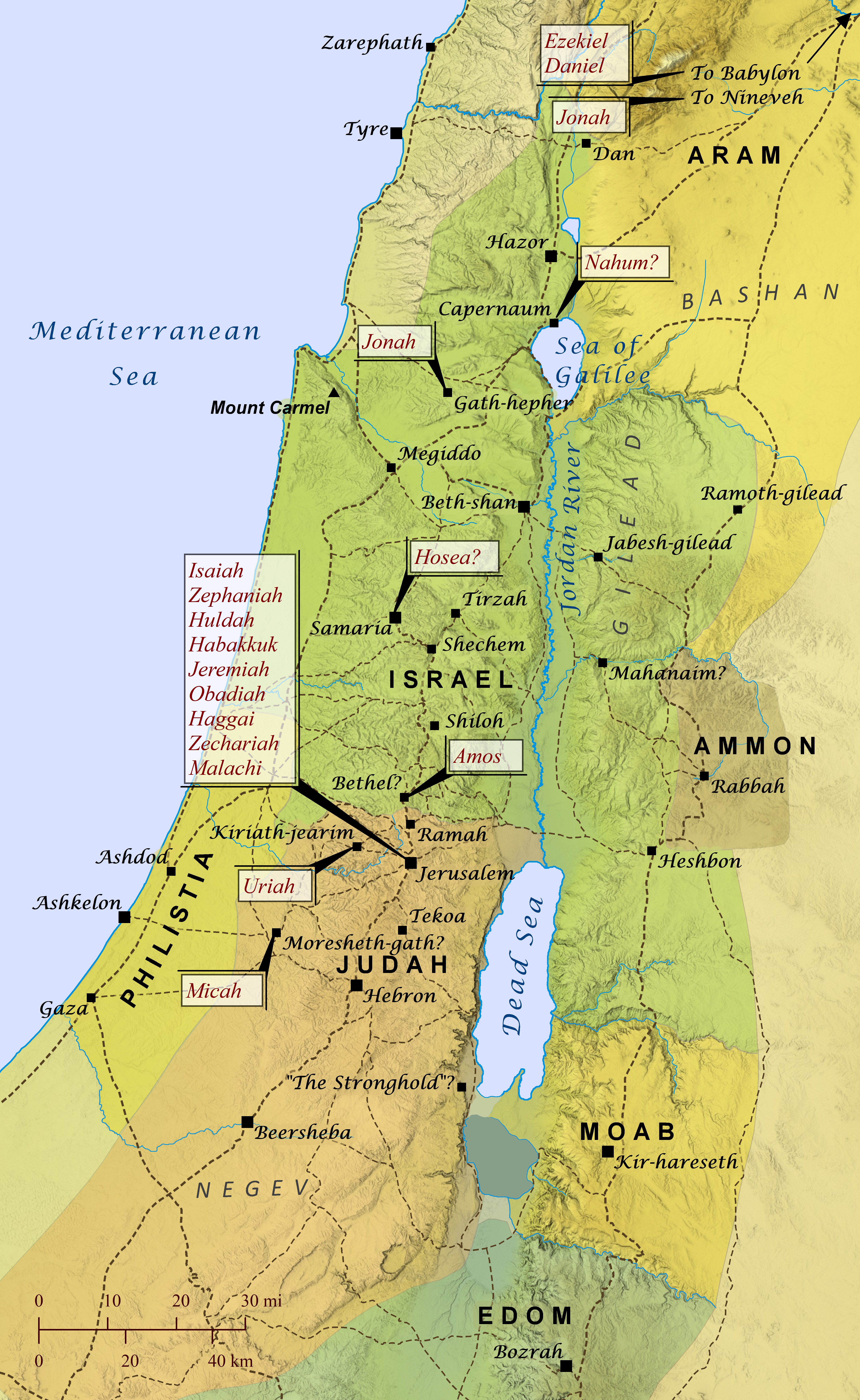Readers’ Version
Literal Version
1 This document is a declaration about Nineveh city which was given to Nahum from Elkosh as a vision.[ref]
2 Yahweh is a jealous[fn] God who avenges.
≈ Yahweh avenges and is full of anger.
He takes vengeance on his opponents,
≈ and he continues to be angry with his enemies.
3 Yahweh is slow to get angry, but very powerful.
He certainly won’t allow guilty people to go unpunished.
He walks among whirlwinds and storms,
≈ and clouds are like dust stirred up by his feet.
4 He scolds the ocean and makes it sand.
≈ He makes the flowers wilt in Lebanon.
5 The mountains shake when he appears,
≈ and the hills melt.
The ground heaves at his presence—
actually the entire world and all its residents.
6 What can withstand his indignation?
≈ Who can resist his fierce anger?
His anger is poured out like fire,
and rocks shatter in front of him.
7 Yahweh is good at sheltering us when trouble comes.
≈ He recognises those go to him for protection.
8 He’ll completely destroy his opponents with a rushing flood.
≈ He will chase his enemies into the darkness.
9 Whatever is plotted against Yahweh,
he’ll completely destroy it.
≈ Trouble won’t return a second time.
10 They’ll get tangled up as if in thorns,
They’ll be burnt up completely like dry stubble.
11 Someone in Nineveh made a decision,
Someone with wicked plans.
Even though the Assyrians are numerous and well equipped.
they’ll be destroyed anyway and will be no more.
Although I’ve afflicted you my people,
I won’t afflict you any more.
13 I’ll free your neck from their harness.
≈ I’ll snap their chains that are holding you.
14 Yahweh has given instructions about you, Nineveh.
You’ll have no more descendants to carry on your name.
I’ll destroy your idols and images in your temples.
I’ll dig your grave because you’re despised.
15 My people, look, a messenger is running across the hills.[ref]
He’ll be bringing good news—announcing peace.
So celebrate your festivals Yehudah, and keep your promises,
because that wicked country won’t invade you again—it’ll be destroyed.
1:2 Throughout the Hebrew Scriptures, Yahweh often compares peoples who worship idols (instead of him, the creator) similar to a spouse that has an affair.
3 YHWH is_long_of anger(s) and_great_of[fn] power and_to_leave_guilty_unpunished not YHWH he_will_leave_unpunished in/on/at/with_whirlwind and_in/on/at/with_storm its_road/course and_clouds are_the_dust_of feet_of_his.
4 he_is_rebuking in/on/at/with_sea and_makes_dry_it and_all the_rivers he_dries_up Bāshān it_languishes and_Karmel/(Carmel) and_blossoms_of Ləⱱānōn it_languishes.
5 Mountains they_quake from_him/it and_the_hills they_melt and_heaves the_earth/land at_presence_of_his and_world and_all those_who_dwell_of in/on/at/with_it.
6 To_(the)_face_of/in_front_of/before indignation_of_his who will_he_stand and_who will_he_endure in/on/at/with_fierce_of anger_of_his severe_anger_of_his it_is_poured_out like_THE_fire and_the_rocks they_are_pulled_down before_him.
7 is_good YHWH for_stronghold in/on_day trouble and_knows those_who_take_refuge_of in_him/it.
8 And_in/on/at/with_flood which_passes_over complete_destruction he_will_make adversaries_of_his and_enemies_of_his he_will_pursue darkness.
9 Whatever plot against YHWH complete_destruction he will_be_making not two_times it_will_arise trouble.
10 If/because to thorns entangled and_like_drink_of_their drunkards they_will_be_consumed like_stubble dry full.
11 From_you he_has_come_out one_who_plots on YHWH evil a_counsellor_of worthlessness.
12 thus YHWH he_says though complete and_thus/so/as_follows numerous and_thus/so/as_follows they_will_be_cut_off and_pass_away and_afflicted_you not afflict_you again.
13 And_now I_will_break yoke_of_his from_upon_you and_shackles_of_your I_will_tear_apart.
14 And_commanded concerning_you YHWH not it_will_be_sown for_name_of_your again from_house_of gods_of_your I_will_cut_off idol and_image I_will_make grave_of_your if/because you_are_insignificant.
1:3 OSHB variant note: ו/גדול: (x-qere) ’וּ/גְדָל’: lemma_c/1419 a morph_HC/Aamsc id_34W26 וּ/גְדָל

